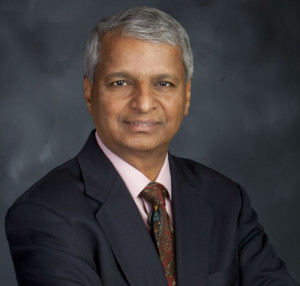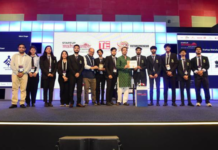By Desh Deshpande
(Editor’s note: This is Part-19 of the weekly video column with philanthropist and serial entrepreneur Desh Deshpande, with excerpts from his book “On Entrepreneurship and Impact.” This column appears every Monday.)
“The ones who are crazy enough to think they can change the world, are the ones who do.” Steve Jobs
People ask me all the time, “Desh, the people around me have lost faith and given up on my idea, but I continue to believe in it. I see a need for my company in the market, but the others around me don’t. How should I handle this situation?”

I think it boils down to a very simple question:
Do you really believe in what you set out to accomplish?
If you doubt yourself, and are doing it for the sake of your ego, then it’s not a good way to run a company.
If you believe in your idea, you do so for a reason. Go back to the source and reclaim that power to get motivated to stay the course.
The game of entrepreneurship has changed tremendously from when I started. Back then, if you wanted to start a company, it was usually in isolation, but now, it’s seen as a career. Nowadays, if things go wrong, the entrepreneur has many options, including changing the business model or pivoting, to name a few.
In 1990, I started a company called Cascade Communications, and in our first year, we had 12 engineers. I would often invite people I knew in the industry to come in and talk to our employees. They would often tell us our company wouldn’t work, because of the limited view they had. Since we had so much more insight into the problem that we were trying to solve and because we spent a significant amount of time on solving that problem, we didn’t listen to them.
There are usually one or two reasons for why a company will work, but around fifty reasons as to why it will not. Cascade Communications was no exception. Most of the objections raised were irrelevant, because we knew the technology had moved around, and our approach and solution were both practical and relevant. However, we did think through the other possible objections before moving forward. The objections raised helped us to strengthen our product offering and, more importantly, it strengthened our resolve to continue going after our dream.
My point is that entrepreneurs shouldn’t listen to every single piece of criticism coming their way, as they will end up spending too much time trying to satiate everyone. However, if you start to see a recurring pattern in the criticisms, it might be time to reevaluate what you are doing in the market.
It’s important for entrepreneurs to find that balance, where they still keep their passion alive, but also keep their ears open to any sort of patterns in the criticism that come their way.
In summary, as long as you believe your company will fulfil a pressing need in the world, it will keep you going in the tough times.
(About Desh Deshpande: During his entrepreneurial career spanning over three decades, Gururaj “Desh” Deshpande has built several companies. He has injected his passion for innovation and entrepreneurship into a number of social impact initiatives in India, the USA and Canada. He has been recognized for his entrepreneurial accomplishments by many institutions including being named co-chair of President Obama’s National Advisory Council on Innovation and Entrepreneurship. He currently also serves as a Life Member of the MIT corporation. He resides in Boston together with his wife, Jaishree.)








